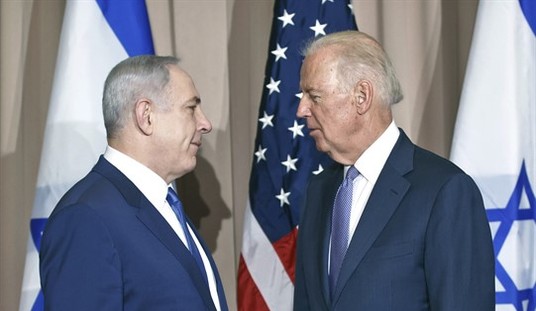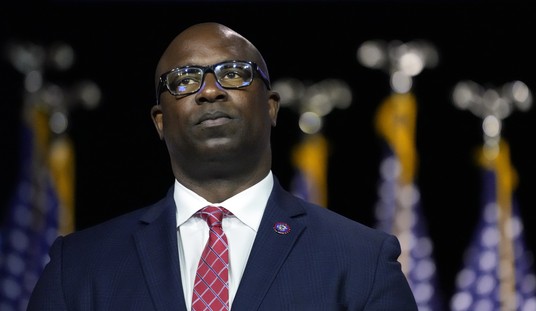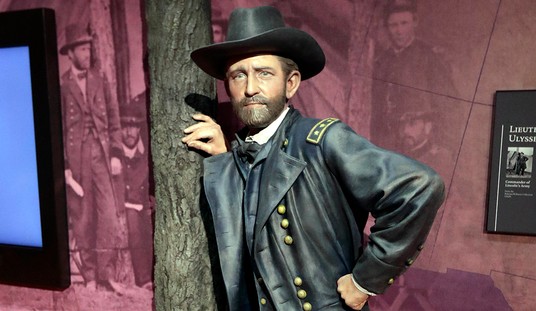It starts with the headline, which may at first seem innocuous until you think about it for a moment: “Outrage follows Denver police shooting of Latina in stolen car.” We’ll get to the story, which was published in the Los Angeles Times on Feb. 4, in a moment, but let’s unpack that hed, which is just loaded with loaded words.
The word, “Outrage,” suggests a widespread, mass reaction to some sort of enormity. “Police shooting” immediately evokes Ferguson, Staten Island and any other place in which there has been a recent confrontation between a “minority” and the cops. And how do we know that the victim was a minority? The very next word: “Latina,” a politically correct identification of a designated victim group who’s just come out on the wrong end of a police shooting.
Finally, this bit of additional information: “stolen car.” Now, you might think at first this hurts the “Narrative,” the consistent socially and culturally Marxist tale the media tells about modern American society. Maybe, you think, the “Latina” was just innocently joyriding around in a car her boyfriend boosted — but as it turns out, she was driving the car. So here’s the underlying media moral: even though the “Latina” may have been a criminal, she didn’t deserve to die for grand theft auto or joyriding; in the “Narrative,” no minority ever deserves to suffer any serious consequence for the commission of a crime because (in the media’s mind) that’s just what minorities do.
In short, we haven’t even started reading the story, and already we know the dramatis personae (good girl Latina, bad guy killer cops). Now it’s just a matter of letting the players do their thing, complete with weeping chorus of relatives, onlookers and ministers in the background:
A row of burning candles and makeshift crosses sits in a bleak alleyway here, marking the spot where 17-year-old Jessica Hernandez’s joyride in a stolen car came to a violent end.
Mimi Madrid Puga, 26 and a youth organizer, gazed at the memorial. “I was Jessie 10 years ago,” she finally said. “I took cars. It’s a rite of passage for many teens, but it shouldn’t carry the death penalty.”
And, bingo — right out of the box we have the character of the Sympathetic Ethnic Bystander, articulating the theme of this tragic playlet. Everybody steals cars, but “it shouldn’t carry the death penalty.” It’s just a rite of passage, like getting that first summer job or making out in the movie show.
Last week, Hernandez and four other teenage girls were cruising Denver’s middle-class Park Hill neighborhood in someone else’s Honda when they were spotted by police.
You know how that happens: you stagger out of the house one morning, hop into a car that looks very much like yours — or not! — and off you go. It’s not until you’re being “spotted by police” that you say to yourself, “this is not my beautiful car!”
The officers said that they ordered the girls out of the car, but that instead Hernandez tried to run them down, so they opened fire. But some of her passengers say the car careened toward police after Hernandez was shot and lost control of it. One officer reported an injured leg, though how it happened is unknown.
Witnesses said she was dragged from the car, apparently unconscious, and handcuffed before she died.
As we learned from Ferguson, eyewitnesses never lie about the interactions between a member of the “community” and the police. Everybody’s on the same page, justice-wise, and only want to serve the truth. Not to mention the inconvenient fact that all of her witnesses were also riding in the stolen car.
And with that setup, away we go:
The incident has sparked angry protests in Denver echoing those held over controversial police killings in Cleveland, New York, Albuquerque and Ferguson, Mo.
“It is extremely troubling that those empowered and permitted to carry guns whose primary charge is to serve and protect are continually involved in the taking of the lives of so many minority children who themselves are not armed,” said the Rev. Patrick Demmer of the Greater Denver Ministerial Alliance.
Ah — an “alliance” has appeared. An “alliance” that, most likely, you never previously have heard of until this moment. And not just any old alliance, but an alliance of “ministers” — holy men (and, probably, women). An “alliance” against — wait for it — killer cops who are “continually” killing unarmed minority children. Would it be better, one wonders, if the minority “children” were themselves armed, the better to give them a sporting chance against the wanton, killer — and at least honorarily — white cops?
Another 17-year-girl was shot dead last week after pulling a knife in a Texas police station. That incident was captured on video.
Always a mistake to bring a knife to a gunfight: “another” incident — in Texas — that has absolutely nothing to do with what happened in Denver…
Denver Police Chief Robert White has vowed to carry out a fair and transparent investigation into Hernandez’s death, but her parents are demanding a federal inquiry.
Because every local police incident, unless it’s between and among white people, demands a federal inquiry. This is how our constitutional republic of limited federal government works. And that quote from Chief White, by the way, is the first you have heard of the famous Other Side — already in full cringe mode. Now back to the Narrative:
“We are dismayed that the Denver Police Department has already defended the actions of the officers and blamed our daughter for her own death, even while admitting they have very little information,” said Jose Hernandez and Laura Sonia Rosales in a statement Friday. “In recent months, police killings have torn apart communities across this nation, and the unjustified shooting of our daughter is only the latest sign of an issue that requires federal oversight.”
Some Southern Poverty Law Center-type lawyer must have written that one. Checks all the boxes: decry “blaming the victim,” reference other “police killings,” and cite the “latest sign” in what’s obviously an ongoing, nationwide police plot to murder gentle giants and joyriding Latinas in boosted Hondas everywhere.
The incident marks the fourth time in seven months that Denver police have fired on moving vehicles they say were being used as deadly weapons. Two of those shootings resulted in the drivers’ deaths.
There’s obviously something going on here — not with the criminals of Denver, but with the cops…
“There are unfortunately too many civilians being shot too frequently in Denver and the rest of the country as well,” said Mark Silverstein, legal director for the American Civil Liberties Union of Colorado. “The emerging trend in law enforcement is that if a moving vehicle is coming toward you, don’t shoot — get out of the way.”
That “civilians” is a nice touch, reinforcing the martial notion that the police are at war with the “community.” Plus the ACLU. Do we get another cringe? Of course we do:
Chief White says he is reassessing the department’s policy. “There is already a high threshold” for firing at moving vehicles, said Denver police spokesman Sonny Jackson. “You have to believe your life is in danger.”
Meanwhile, many law enforcement experts say shooting at speeding cars is risky and often ineffective.
“Most progressive police departments in this country and around the world prohibit it, with the very small caveat of saying you can do it if you are trapped,” said Geoffrey Alpert, professor of criminal justice and an expert in police use of force at the University of South Carolina. “Shoot the driver and you have an unguided missile.”
Did Denver move to South Carolina? I don’t think so. But, since we’re writing for a Los Angeles audience, it’s time to throw in a reference to the Industry just for the hell of it:
The physics of accurately hitting a target in a fast-moving vehicle with its hardened rubber, metal and curved glass surfaces make it even more challenging.
“Shooting at vehicles in practice is nothing like you see on television or at the movies,” said Vincent Henry, a former New York City cop and director of the Homeland Security Institute at Long Island University. “Firing a perfect shot with perfect placement is usually not going to happen.”
News flash: firing a perfect shot with perfect placement is usually not going to happen even on the firing range with a stationary paper target, especially when if the shooter is as poor a shot as most beat cops.
In this case, however, Denver officers hit their target, killing the unarmed teenager and sparking widespread outrage.
Now comes the part that, were this the New York Times, would have been in the lede:
The slight, gangly Hernandez was the eldest of six children in the family, which lives in suburban Thornton. She wrote poetry, attended high school and was openly gay. Her parents called her a “beautiful girl who brought love and joy to her family and friends.”
In the Leftist mindset, a multiple winner for the Denver cops: they got to kill an unarmed kid, a Hispanic girl, and a lesbian. Still, there’s a tiny little “but” coming:
But this wasn’t her first run-in with the law. The Associated Press reported that she was cited Jan. 1 for eluding an officer and resisting arrest after being stopped traveling 80 mph in a 55-mph zone.
That’s it. No details about the the Honda, how or why it was taken, who the other passengers were, and, most important, a description of the alleged rundown attempt.
Her supporters worry that she is being vilified unfairly.
“I would say stealing cars is pretty common, but when it’s someone of color the narrative is that they are a criminal,” said Angell Perez, executive director of the Victim Offender Reconciliation Program in Denver. “If a suburban kid gets caught, they are put in a diversion program. Jessie was gunned down. That shows just how disposable young people of color are.”
I would say stealing cars could be fairly described as criminal, without regard to the skin color of the car thief.
We end where we began, with the “youth organizer”:
Back in the alley, Mimi Madrid Puga looked at a small sign that read, “We are sorry for your daughter — God bless you!!”
“In many ways, Jessie was typical. The intricacies of her life don’t matter,” she said. “What matters are young lives. Period.”
Not society. Not the law. Not somebody’s else’s property. Not civilization. Young lives. Period.
And that’s how media bias works. First, find a story that has all the components of the current meme-du-jour. Then link it other stories in which the only similarity has to do with the ethnicity of the victims, and thus further the notion of a trend. Finally, cast the tale as emotionally heart-wrenching as possible, the better to drive home the Marxist world view of race and class.
None of the foregoing is meant to diminish the pain of the loss of a child. We will never know whether Jessie Hernandez might have gotten her life together and gone on and made something of herself. It’s a tragic story that has played out on the streets of America thousands of times over the past century, regardless of the skin colors of both perp and cop. (Yes, this used to happen to white kids as well.) In our race-obsessed media-driven society, that history lesson seems to have been forgotten:
As Rocky Sullivan learns the hard way in Angels with Dirty Faces, sometimes it’s not the cops. Sometimes, it’s you.









Join the conversation as a VIP Member